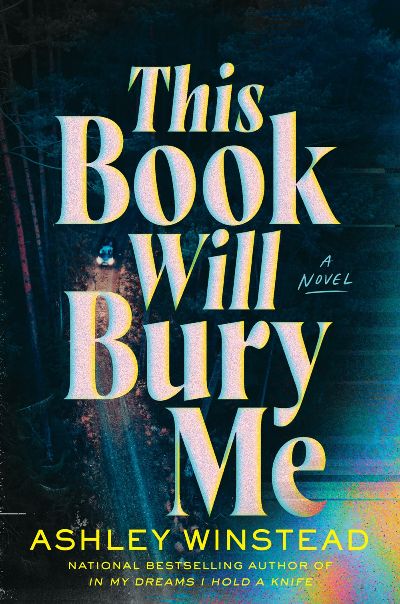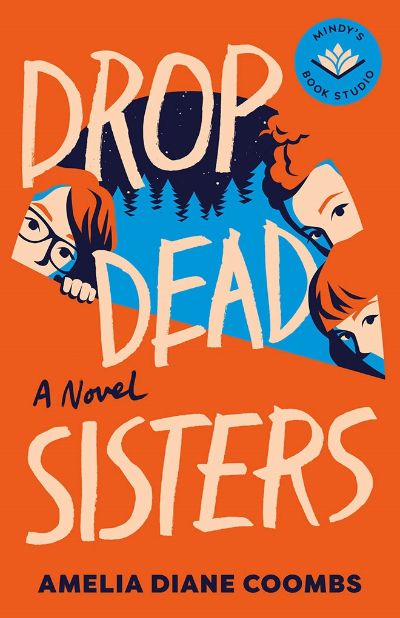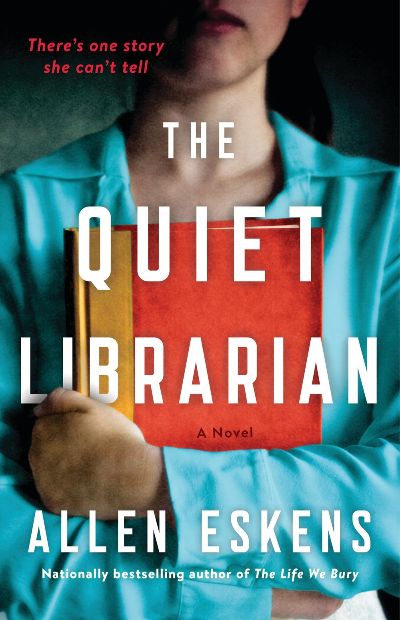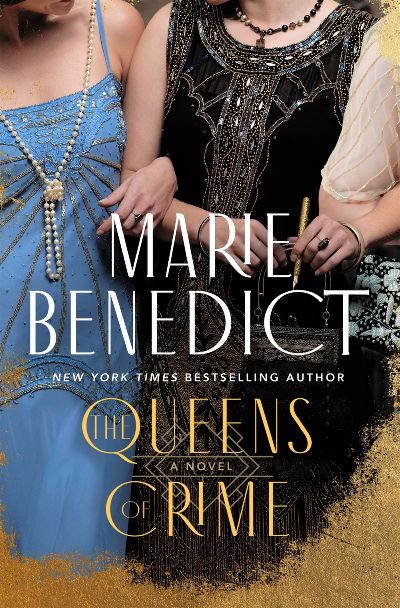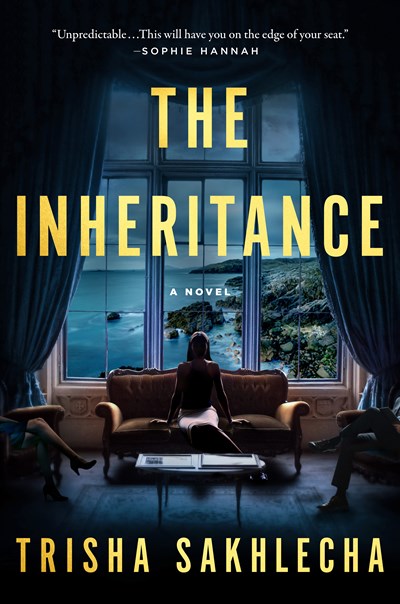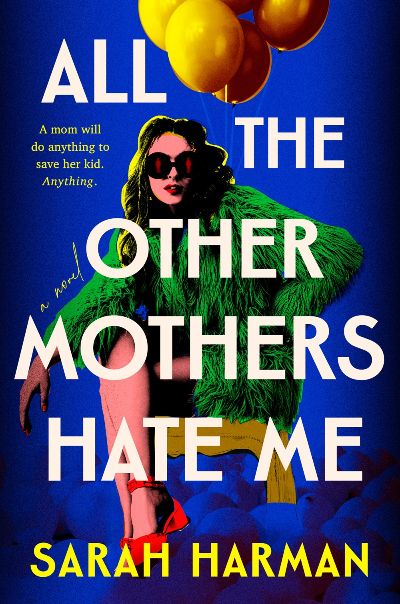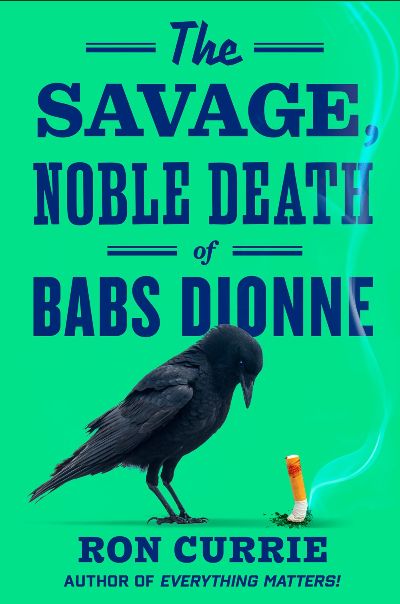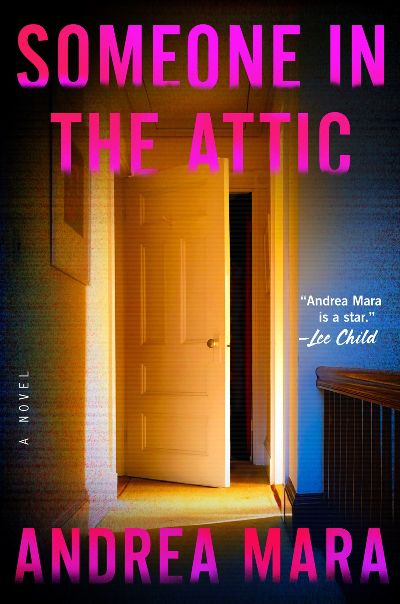The world of amateur true-crime investigators—and what a populous world it seems to be!—is given its own investigation in Winstead’s (Midnight is the Darkest Hour, 2023) latest, with the author using murders at a sorority house to show who benefits from and who’s destroyed by the trend of podcasters as police. Readers enter through the screen of Janeway Sharp (Star Trek fandom plays a big role here), the youngest of a group that calls itself the Real Crime Network. She’s drawn to the work after the sudden death of her beloved father and grows an obsession with true crime even though she feels it is wrong. In the Network, she finds forgiving and encouraging brethren who are only too happy to accompany her into the frightening details surrounding the murder of three sorority sisters who were stabbed and left in a bloodbath. Jane, now called Searcher, and her companions can’t stay away from the college town in question, Delphine, Idaho. Readers are taken to new viewpoints along with them, meeting the families in question, the townspeople who are suddenly besieged by murder groupies, and the police and FBI, who are willing to take the help when the Network starts to be successful. Suspects, twists, and danger add to the media-cult side of the tale, adding up to a smart whodunit with a side of contemplation.
Women
Camping with her crunchy-granola parents, nit-picky sisters, and assorted also-exhausting family members is Remi Finch’s idea of torture. But it’s her parent’s 40th wedding anniversary and they plan to renew their vows, so fine. She can put up with these people for a few days, especially when she sees that a handsome park ranger is part of the package. Also part of it, though, is Guy, the loathsome son of family friends, who when he was younger held Remi underwater so long she thought she’d drown. Grandma’s reaction, “even when I could still taste chlorine in the back of my throat,” was that horrible Guy obviously had a crush on her. So she’s not expecting much assistance when she finds herself in danger on the trip, a prediction that comes both true and not, as her family steps up but sometimes doesn’t know when to stop. Readers will find the Finches both a lovable and a very real family, with affection and exasperation battling for top spot in Remi’s feelings for them. The story dips into cozy territory, with the law-enforcement love interest, the off-screen killing, and the slapstick family antics, enriching a puzzling whodunit in the process. A great choice for cozy fans who enjoy a wilderness element.
As a single, 47-year-old librarian in Minnesota, Hana Babic leads a quiet life. Until one day when a police detective stops by the library to inform her that her best, and really only friend, Amina, has been murdered. Hana and Amina share a history that extends back to the Bosnian War, when Hana witnessed the rape and murder of her entire family by Serbian soldiers, murders Hana swore to avenge. Joining Bosnian militia fighters, Hana transformed herself into a fierce warrior who became known as the deadly Night Mora—a legend among Serbian troops. But with a price on her head, she eventually poses too much of a risk to her fellow soldiers, and is sent to the Bosnian community in St. Paul to reinvent herself. Amina’s murder decades later does more than just reawaken Hana’s horrible memories. It convinces her that she is being hunted, and to survive, she must reawaken the Night Mora, drawing Amina’s murderer into a trap. Written in chapters that alternate between Bosnia in the 1990s and present day Minnesota, the book eventually merges into one astonishingly powerful narrative that is nothing less than genius. Like Eskens brilliant The Life We Bury, this would make an excellent choice for a book discussion, especially since many participants will know nothing about the Bosnian War. Eskens includes scenes of sexual violence and other war crimes.
In this marvelous locked-room puzzle, we’re treated to a masterclass in solving mysteries from the grand dames of the form: first-person narrator Dorothy Sayers (Lord Peter Wimsey mysteries) and fellow Queens Agatha Christie (Hercule Poirot et al), Baroness Emma Orczy (the Scarlet Pimpernel), Ngaio Marsh (Inspector Allen), and Margery Allingham (Albert Campion). As a way to be better accepted into the Detection Club, the members of which have expressed “a certain hesitancy…around having ‘an abundance of women’ in the ranks,” the women undertake the investigation of a real crime, the disappearance of a young English nurse while on a trip to France. Dorothy’s journalist husband has been assigned the story and his work gives her a reason to go to the crime scene, the other women secretly in tow–and they’re off. Meticulously following the nurse’s activities before she disappeared, as well as her life before, leads readers into a delicious look at writing conventions of the day as well as how women skirted the low expectations that sought to hold them back. Fans of the writers in question as well as of childhood favorites such as Enid Blyton’s Famous Five will enjoy the old-timey air of innocent sleuthing, while the women’s growing determination to do right by the young victim adds a satisfying air of kindness and steadfast morality. A delight from beginning to end.
“Let me tell you about the very rich,” wrote F. Scott Fitzgerald. “They are different from you and me.” And Kathy Hays’s Saltwater does a spectacular job of illustrating not just how they are different, but why. Back in 1992, Sarah Lingate—a Lingate by marriage, not blood—took a tumble down the cliffs behind the family’s villa in Capri during their annual vacation. She left behind Helen, her three-year-old daughter; Richard, her madly controlling husband; and other relatives and hangers-on. Was Sarah pushed or did she jump? Pushed is what most of the island thought, but with their vast resources, the old-money Lingates were able to insure that her death was ruled an accident. Thirty years later the Lingates, like so many swallows, are making their annual pilgrimage, as though to prove to the world that they are beyond public opinion. But as one disturbing incident after another occurs—who sent them the necklace Sarah wore to her death?—cracks and fissures begin to show. Written from three points-of-view: that of Helen, who desperately wants to escape from the family; Sarah, speaking right before her death; and Lorna, a personnel assistant who has disappeared, this novel creates a world and then takes it apart, in the most shocking of ways. For readers who enjoy contemplative crime dramas.
Succession meets Canyon Ranch in this terrifying family reunion. The deeply complex and über-rich Agarwals family (parents, three adult kids, a daughter-in-law), with homes scattered about the map, have gathered together on an island off Scotland. The estate is owned by Myra, the oldest daughter. She’s putting the finishing touches on the conversion of the mansion into a luxe resort and wellness center, and losing buckets of money in the process. But for now it’s just the Agarwals’ playground. And there’s plenty to celebrate, including the parents’ fortieth anniversary (Shalini, the mother, is very needy) and the announcement by patriarch Raj of his long-awaited succession plan (he’s pretty arrogant). Narrated by both Myra and Zoe, the middle-class daughter-in-law who is a fake influencer, everyone’s dirty laundry gets exposed as they wait to see who gets the biggest cut of the pie. With the addition of some angry Scots—this is their land!—and the arrival of former family members, you have a recipe for murder that is certain to shock most readers. Here’s a clue: if the Agarwals motto is “family first,” where does that leave everyone else?
She ain’t lying! All the moms do hate her. Because Florence Grimes is quite the unrepentant good-time girl who gets all the side-eye from the moms and smirks from the dads. She has a collection of lovers that’s like a deck of cards. Her get-ups are designed to provoke, at the very least. And her last, and only, job—years ago—was in a girl band that ended in humiliation. The one ray of light is her ten-year-old son, Dylan, who is a radical environmentalist and attends a fancy London all-boys school. But when Alfie Risby, Dylan’s bully and heir to a frozen-food empire, suddenly disappears during a class trip, and Dylan is the prime suspect, Flo starts to wake up and realizes that she is the only one that can save Dylan. Rich in satire, hugely funny, with a running wink-wink to the reader, this novel is pure comedic gold.
Men do live in Waterville, Maine. They even live in Petit Canada, the staunchly French neighborhood where “people [have] more trouble than money.” But the town’s men seem mostly beside the point. The women, on the other hand, use “visiting”—sitting over coffee—as time to “organize, decide neighborhood business, and leverage collective will to solve problems.” Chief at both causing and solving those problems is self-proclaimed “goddamn cast-iron bitch” Babs Dionne, who runs the town and is feared by all, but also fiercely loved. A teenage Babs commits a crime as the book opens, one that follows her over the decades of the story, corroding her ability to show love to the children she adores. One of them, Sis, is now missing and the family suspects her drunken husband is to blame. Babs and her other daughter, Lori, who’s using drugs to push down the PTSD she gained in Afghanistan, set out separately to find the woman, Lori desperate to spare Babs from the pain of likely tragedy. At the same time, a character known as “The Man” is not so gently working to convince Babs that the underworld business she’s controlled for decades is his now. We’ll see about that. Currie’s tale and his powerful writing are reminiscent of small-town sagas by Richard Russo, and are peopled by the same kinds of won’t-let-you-go characters. An immersive book to be savored.
A deep investigation into the lives of two women: a mistress and her maid. Maju is one of scores of the “white army,” maids and nannies in São Paulo; she cares for young Cora, whose parents pay the child little attention. Fernanda, Cora’s mother and a successful TV executive, is uniquely self-involved; even when Maju and Cora disappear one day, Fernanda can’t stop obsessing over an affair she’s having long enough to focus on her own daughter’s abduction. Dad, meanwhile, has pretty much checked out. But once Fernanda does realize her daughter is gone, her whole world begins to cave in. Maju and Cora, meanwhile, have boarded a bus for a multi-day trip that Maju barely plans—they have limited food and money—and that begins to unravel after the first day. Each woman is confronted by a harrowing series of events that forces them to confront maternal guilt, poverty, and society’s expectations.
Talk about domestic suspense. Julia has moved back to Dublin from San Diego with her kids, who hate their new environment, and her ex-husband, Gabe, who trades time at home with her. Weekends she’s in the house with the children and he’s in a nearby apartment; weekdays the opposite. It’s all very pally, but there’s one big problem: their family seems to be a victim of a social media prank that involves people hiding in attics and jumping out to terrify the residents. Repeated Tik Tok videos, not made by the family, show views of their home as though made by someone inside. And wasn’t there that case, her kids insist, where someone lived in an attic and came out at night to wander the house? Her son is especially terrified—the depth of his fear is clear when his mom tells him not to be afraid to be alone, and he says his fear is that he isn’t alone—prompting Julia to investigate. Weird neighbors and the family’s recent and more distant past offer multiple possibilities for who’s terrorizing them, and readers will enjoy Mara’s taut plotting and believable family dynamics (especially the eye-rolliness of the teen daughter). Julia and her children’s fear comes through so palpably that you’ll be ready to help them move again while silently cursing the useless authorities and blithe Gabe. A gripping read.

